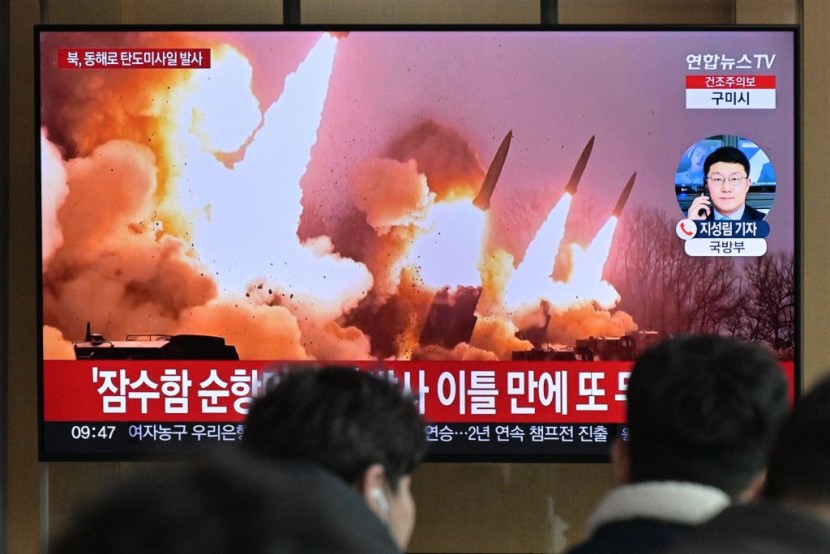North Korea has announced the successful test of its latest cruise missile, the Pulhwasal-3-31. The test was reported by the official Korean Central News Agency (KCNA) on Thursday, revealing that the missile is still in its developmental phase, hinting at its potential to be armed with nuclear weapons.
While the specific number of missiles fired remains undisclosed, the KCNA was quick to reassure that the test had no impact on the security of neighboring countries and was unrelated to the current regional situation.

The ambiguity surrounding the test has sparked heightened tensions, particularly given North Korean leader Kim Jong Un's persistent weapons development initiatives and provocative threats of nuclear conflict with the United States and its regional allies.
South Korea's Joint Chiefs of Staff (JCS) detected the launch of "several" cruise missiles from North Korea's western coast, according to a statement released on Wednesday. The JCS is currently analyzing the launch, closely following the recent tests of a nuclear-capable underwater attack drone on January 19 and Pyongyang's first solid-fuel intermediate-range ballistic missile just five days earlier.
The latest launch is believed to be an effort to enhance the capabilities of existing missiles, a sentiment echoed by the JCS. North Korea previously conducted its first test of a strategic cruise missile in September 2021, and the recent test is seen as part of the ongoing effort to update the country's weapon system.
Cruise missiles, characterized by their jet propulsion and lower altitude flight, pose a challenge for detection and interception compared to ballistic missiles. North Korea's expanding arsenal of cruise missiles aims to overwhelm missile defenses in South Korea and Japan, claiming nuclear capability with a reported range of up to 2,000 kilometers (1,242 miles) - encompassing US military bases in Japan, according to Al Jazeera.
Read Also: Yemeni Houthi Rebels Launch Attacks on 2 US-Flagged Ships Delivering Cargo to Defense Department
Concerns Rise Over North Korean Cruise Missile Tests
It is important to understand that cruise missile tests are not specifically restricted by the strong United Nations sanctions that were implemented in reaction to North Korea's nuclear program. Experts have called out the impact of cruise missiles, recognizing their potential as a strong threat, particularly when armed with land-attack capabilities and capable of reaching intermediate ranges. Although they may not receive as much public attention as ballistic missiles, their danger should not be ignored.
The timing of the missile test coincided with South Korean special forces conducting a drill off the country's east coast, citing "serious security situations" with North Korea. The 10-day exercise, scheduled to conclude on Thursday, underscores the heightened state of readiness in the region.
South Korea made a decision on Thursday about starting mass production for medium-altitude reconnaissance drones, in response to the escalating tensions. The goal is to have these drones operational by 2027, bolstering our surveillance capabilities and making a valuable contribution to defense exports.
The cruise missile tests conducted by North Korea may not directly violate international resolutions, but the uncertainty surrounding the making of their weapons is still a matter of concern. The global community remains alert as the situation on the Korean peninsula advances, focusing on the vital part of diplomats in avoiding an additional escalated action, Reuters reported.
Related Article: Official Reports Over 70 Fatalities in Mali as Unregulated Gold Mine Cave-In Occurs








